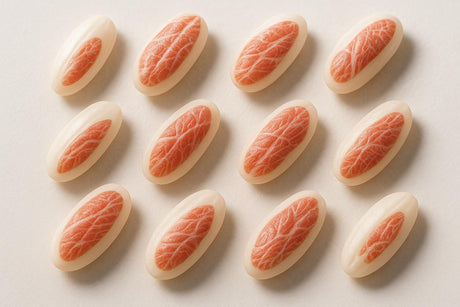In a significant development for food innovation, South Korean scientists have successfully grown beef cells within rice grains. This pioneering approach, led by Professor Jinkee Hong of Yonsei University in Seoul, aims to provide a sustainable, cost-effective, and environmentally friendly alternative to traditional meat production, potentially transforming global protein consumption.
A World First in Cultured Meat
The breakthrough, published this month in the journal Matter, marks the first-ever creation of "beef rice." By using rice grains treated with enzymes to optimise cell growth, researchers cultivated bovine muscle and fat cells within the grains. The result is a hybrid product that retains the shape of rice while taking on a distinct pink hue typically associated with meat.
The process builds on existing advancements in lab-grown meat but uses rice as a base instead of soy or nuts. According to Professor Hong, rice offers a safer foundation due to its lower incidence of allergies compared to other plant-based substrates. "If successfully developed into food products, cultivated beef rice could serve as a sustainable source of protein, especially in environments where traditional animal husbandry is impractical", said Hong.
Nutritional and Environmental Advantages
The hybrid "beef rice" offers nutritional benefits, containing 8% more protein and 7% higher fat content than conventional rice. Notably, 18% of its protein is animal-based, making it a rich source of essential amino acids. This innovation could make it particularly appealing to those seeking alternatives to traditional meat while still consuming high-quality animal-derived nutrients.
Equally important is the product's affordability and lower environmental impact. Priced at approximately $2 per kilogram, the cultured beef rice has a significantly smaller carbon footprint than conventional beef, presenting a compelling case for its adoption in the global food market.
Challenges Ahead: Taste and Texture
Despite the promising potential of this technology, challenges remain. One key hurdle is replicating the flavour and texture of real beef to meet consumer expectations. Keum Dong-kyu, a manager at Mongbeulli, recently sampled the lab-grown rice-meat hybrid at a Korean barbecue restaurant in Seoul. While acknowledging the concept's ingenuity, he expressed reservations: "But honestly, I don't think it can replicate the juiciness or texture of real beef."
Looking to the Future
Professor Hong and his team remain optimistic about the product's potential to address issues of food security and sustainability. As cultivated meat continues to gain traction worldwide, with plant-based chicken and lab-grown eel already available in markets such as Singapore, innovations like beef rice could be instrumental in reshaping the global food landscape.
Though technical and consumer acceptance challenges persist, this breakthrough serves as a promising step toward a more sustainable and accessible future for protein sources. With further refinement, products like cultured beef rice could pave the way for a new era of environmentally conscious food production.













